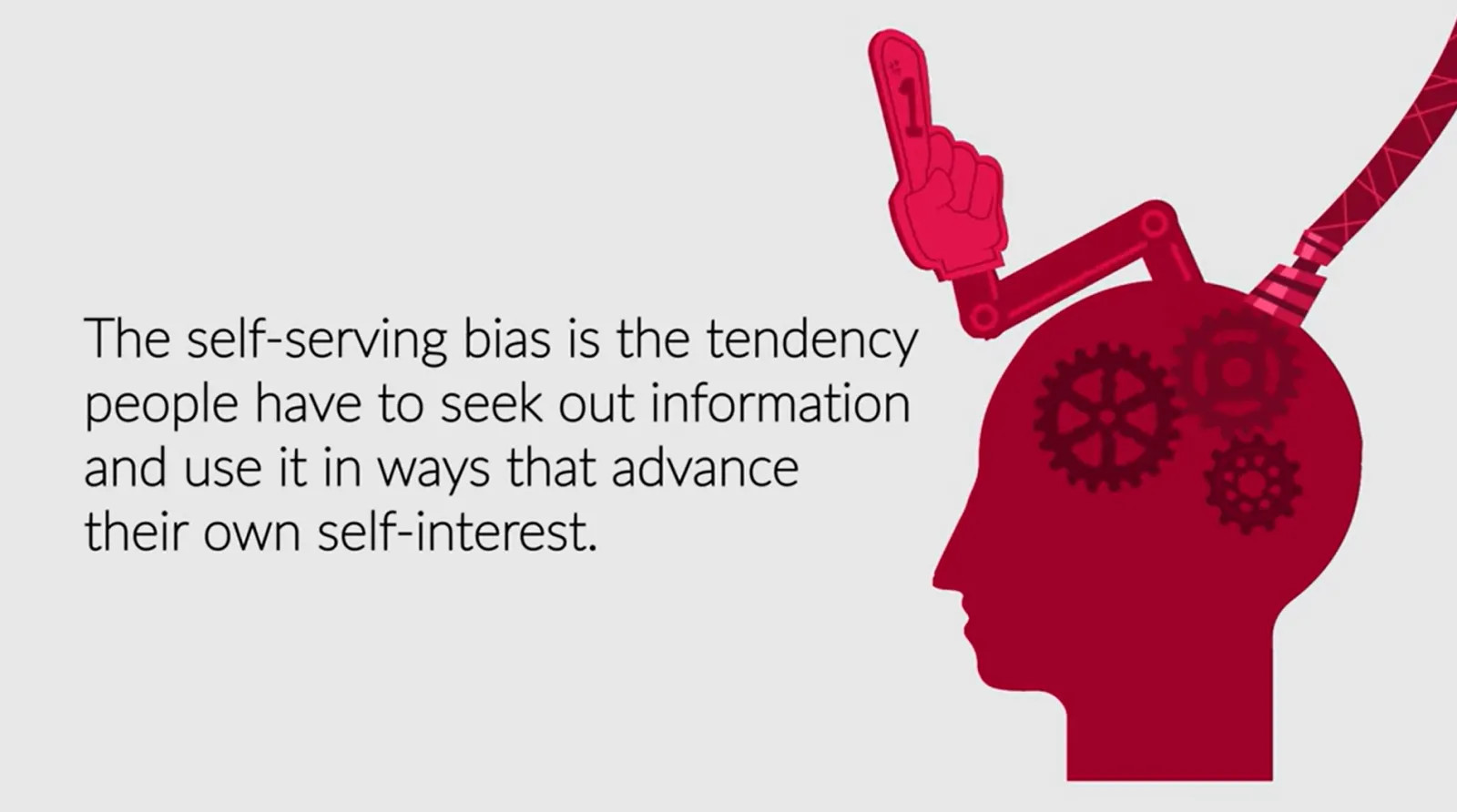It’s a common human tendency: when things go well for us, we often pat ourselves on the back and attribute it to our skills and decisions. Conversely, when things go wrong, we might point fingers at external factors or bad luck. This inclination to take credit for successes and deflect blame for failures is known as Self-serving Bias.
This cognitive bias can subtly creep into our professional lives, affecting how we perceive our contributions and those of our colleagues. Even with the best intentions, we might unconsciously excuse our own shortcomings while judging others more critically. For instance, if a project succeeds, we might believe it was due to our “strategic insight,” overlooking the hard work of the team. But if a project falters, we might blame “unforeseen market changes,” rather than considering our own missteps.
[ Brain gears representing cognitive process of self-serving bias.
Brain gears representing cognitive process of self-serving bias.
Ethics Unwrapped from The Center for Leadership and Ethics at Texas McCombs highlights the pervasive nature of self-serving bias and its implications for ethical conduct. Recognizing this bias is the first step towards mitigating its negative impact and fostering a fairer and more productive work environment.
Here are actionable strategies to actively combat self-serving bias in your professional life:
Seek Honest Feedback: Actively solicit feedback from a diverse group of colleagues, encompassing various backgrounds and perspectives. Be open to constructive criticism, even when it’s challenging to hear. Resist the urge to dismiss alternative viewpoints, whether the feedback pertains to positive or negative outcomes. Seeking diverse perspectives can provide a balanced view, helping to counteract your own biased interpretation of events.
Acknowledge and Credit Others: Make a conscious effort to recognize and publicly acknowledge the contributions of your team members. Highlighting the efforts of others, especially in team successes, cultivates a collaborative and supportive atmosphere. This not only boosts team morale but also reinforces team unity, paving the way for greater achievements in the future. Giving credit where it’s due counters the self-serving tendency to overemphasize personal contributions.
Utilize Objective Evaluation Methods: Implement objective metrics and criteria when assessing project outcomes and individual performance. Engage with external stakeholders or mentors who can offer impartial perspectives and assist in gaining a more objective understanding of situations. Relying on data-driven evaluations and external viewpoints minimizes the influence of subjective biases, leading to fairer assessments.
By consciously implementing these strategies, we can cultivate greater self-awareness and objectivity. Overcoming self-serving bias not only fosters ethical behavior but also enhances team dynamics, improves decision-making, and ultimately contributes to a more equitable and successful professional environment.
For further learning and resources on ethical conduct and cognitive biases, explore the free courses available on UTLearn and delve into the extensive video library on business ethics offered by LinkedIn Learning and Ethics Unwrapped.
As members of our professional community, upholding ethical principles is paramount. When faced with ethical dilemmas, remember to utilize available resources – discuss concerns with trusted colleagues, supervisors, or your HR representative. University support services like the Ombuds Office and University Risk and Compliance Services are also available to provide guidance and support. If you witness unethical behavior, utilize the Compliance and Ethics Hotline to report concerns, knowing that the institution prohibits retaliation against good-faith reporting.

